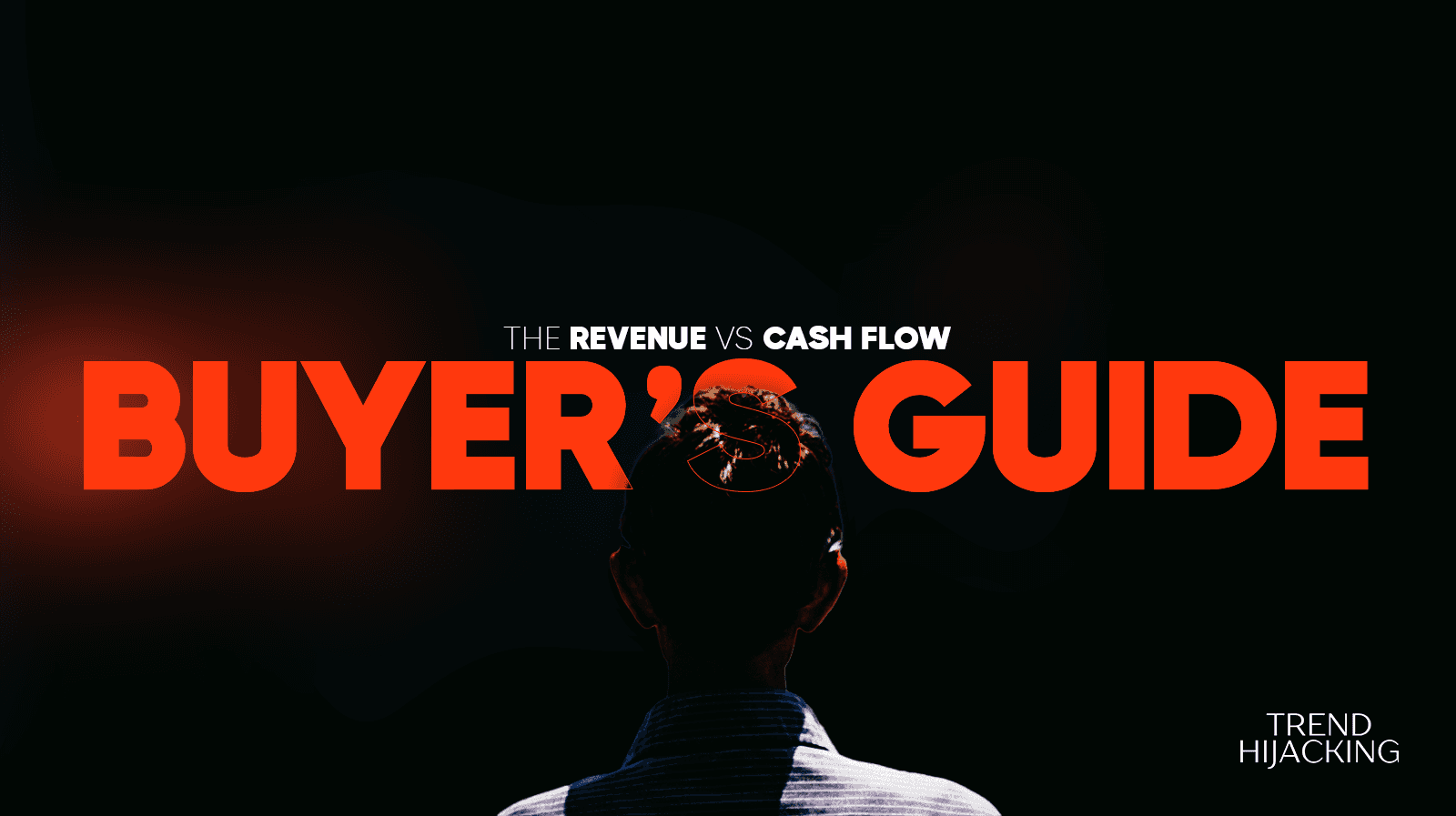
How Long Does It Typically Take To Sell An Online Store In 2026?
You’ve built a successful online store and you’re now thinking about selling it.
And one of the questions bothering your mind right now is, “How long will it take to sell my online store?”
If you’re like most folks, you want to sell it as fast as possible and move on to other things.
You simply don’t want a situation where your business sits on the market forever.
But at the same time, you also want to get a fair price for your business.
The truth is that the timeline for selling an online store varies.
Some e-commerce businesses can sell within a few weeks, while others may take several months.
The average time depends on several factors, including your business size, profit, traffic, and how prepared you are for the sale.
Let’s break this down clearly below…
Average Timeframe To Sell An Online Store

Based on industry data from Empire Flippers and FE International (two of the top online business brokerages), the average online store sale takes between 30 and 120 days.
The exact time your e-commerce store takes to sell can be influenced by factors such as the current market conditions and how well you prepared your business for sale.
Smaller e-commerce sites—those earning less than $100,000 per year—often sell faster, sometimes within 30 to 60 days.
Larger e-commerce businesses, especially those making over $500,000 in annual profit, can take three to six months or longer.
The bigger e-commerce store deals take longer as they require deeper due diligence, more negotiation, and sometimes financing approvals from buyers.
According to a recent report from BizBuySell, the median time to sell an e-commerce business on their marketplace was approx. 60 days.
This gives you a good benchmark, but your own results can differ depending on several key factors.
Check This out: How We Would Turn A 3x Multiple E-commerce Store Into A 5x Exit
Sell Your E-Commerce Business Fast
At TrendHijacking, we help you connect with serious investors who are ready to buy e-commerce businesses like yours.
We check all the numbers and present your business in the best light. Our pre-vetted buyers skip the “is this real?” stage, so you can get a better price and close faster.
Submit your business details today and make selling simpler, faster, and more profitable.
What Affects How Long It Takes To Sell An Online Store

Several things can speed up or slow down your sale. Understanding them can help you plan better and set realistic expectations.
The key factors include:
1. Business Size and Profitability
Buyers look for proof that your store makes consistent money.
If your profits are stable and growing, your store will attract serious buyers quickly.
A Shopify store making $10,000 per month in profit will usually sell faster than one making $1,000.
This is because buyers will see it as a less risky investment.
High-quality stores also tend to get multiple offers, which shortens the process.
2. Financial Documentation
Having clear, verified financials can help you speed up the whole selling process.
Buyers expect you to provide them with clean books that show revenue, expenses, and profit.
If your accounting is messy or incomplete, then you should expect delays.
If you want to make the verification process smoother and faster, you may consider using tools like QuickBooks, Xero, or even Shopify’s built-in reports.
Many e-commerce business brokers say that poor financial documentation is the top reason sales stall.
Related: 10 Questions To Ask A Broker Before Buying A Business
3. Traffic Sources and Stability
Is your store’s traffic depends heavily on a single channel such as Facebook Ads?
If yes, then buyers might perceive this as a risk. In other words, most buyers prefer diversified sources like organic search, email, and social media.
Stable traffic and conversion data over 12 months make your store more appealing and reduce the time it takes to close a deal.
4. Niche and Market Demand
From our years of experience closing deals, one thing we can tell you for sure is that some niches sell faster than others.
We have noticed that online stores in growing industries, such as health supplements or pet products, tend to attract more buyers.
If your store sells seasonal products or targets a small niche, it might take longer to sell.
Simply put, market demand plays a big role in how fast offers come in.
5. Valuation and Price Expectations
Pricing your store correctly also directly influences how fast you sell it.
If you overprice, it can sit on the market for months.
If you underprice, you end up leaving money on the table.
Most e-commerce stores sell for 2.5x to 4x their annual net profit, according to Flippa’s 2023 valuation guide.
You can learn more about e-commerce business valuation here.
If your business earns $100,000 in profit per year, you should expect offers between $250,000 and $400,000, depending on growth trends and risk factors.
6. Where You List the Business
Yes! The platform you choose for selling your e-commerce business also dictates how quickly it moves.
Let’s take a look at the most common platforms to consider:
Marketplaces: If you opt to list your business on platforms like Flippa, they connect you with buyers quickly, but you should keep in mind that competition is high.
Brokerages: Brokers like Quiet Light handle the process for you, qualifying buyers and managing offers. This often leads to faster and smoother sales, especially for larger stores.
Private sales: This involves selling directly to a buyer and can quicken things if you already have a contact, but it is risky if you skip proper due diligence.
The Step-by-Step Timeline For Selling Your E-commerce Business

Here’s what the ecommerce business sale process typically looks like, with average time estimates for each stage:
Preparation (2–4 weeks)
This is the setup stage, and it matters more than most people think.
Here, you need to start pulling together your financial records, traffic reports, and supplier details.
Make sure your numbers add up and everything is easy to explain (buyers will always check).
If you’re working with a broker, this is also when you’ll create a short business overview (called a prospectus).
The overview gives buyers a clear picture of what your store offers and how it performs.
Listing and Marketing (1–8 weeks)
Once your store is ready, it’s time to put it out there. You or your broker will list it on a trusted marketplace or platform where buyers are actively looking.
After that, you should brace yourself for a wave of interest; some serious, some just browsing.
You’ll spend this time responding to inquiries, sharing performance data, and answering buyer questions so they can see why your store is worth their attention.
Check out this post on the most common questions buyers ask when buying online businesses.
Negotiation and Offer (1–4 weeks)
The negotiation and offer stage typically runs for about one to four weeks.
This is where buyers submit their letters of intent, and you go through each offer to compare the terms.
From there, you negotiate the details, work through any sticking points, and eventually settle on a price that makes sense for both sides.
Due Diligence (2–6 weeks)
The due diligence stage usually lasts anywhere from two to six weeks.
During this period, the buyer digs into your financials, traffic, and supplier relationships to make sure everything checks out.
If the business is larger or has more moving parts, this step can take a bit longer because there is simply more for the buyer to review carefully.
Closing and Transition (1–3 weeks)
The closing and transition phase should last for around one to three weeks.
This is simply the phase where all the final legal paperwork gets signed, and the payment is processed through escrow.
Once that is handled, you walk the new owner through taking control of the accounts, suppliers, and everyday operations so they can step in with confidence.
Altogether, the whole process adds up to roughly 2 to 4 months on average, assuming you don’t experience any major delays.
Related: How to Make a Business Acquisition a Smooth Transition
How To Speed Up The Sale Of Your Online Store:

Belo, we have compiled some practical tips that can help you sell your e-commerce store faster:
#1. Make sure your financial records are clean and consistent. Everything should match up and be easy for a buyer to verify.
#2. Write everything down in a clean, organized way. Put together a clear list of your suppliers, the tools you use, and the processes that keep the business running.
#3. Take care of any small issues before you list the business. Clear up chargebacks, settle any late supplier payments, and smooth out customer service problems so buyers don’t run into avoidable red flags.
#4. Consider bringing in a professional to support the process. A good e-commerce broker already has an active pool of buyers and can save you a significant amount of time by handling the back-and-forth for you.
#5. Stay quick on your replies when buyers reach out. Fast, clear communication keeps the momentum going, and long delays can cause a solid deal to fall apart.
Related: Do You Need A Lawyer To Sell A Business?
Final Thoughts
Selling an online store usually takes between one and four months, depending on the size, documentation, and market demand. Smaller stores with clean financials can sell within weeks, while larger or complex ones take longer.
If you prepare well, price fairly, and stay organized, you can shorten the process and attract serious buyers faster. Selling an e-commerce business is a big move, but with the right preparation, it doesn’t have to drag on.
Take time to get your business sale-ready before listing. The more prepared you are, the faster you’ll close the deal. And the smoother the transition will be for both you and the buyer.
Thinking About Selling Your Online Store?
You’ve built something valuable, and now it’s time to get the return you deserve.
At Trend Hijacking, we help connect e-commerce business owners looking to sell their businesses with serious, pre-qualified buyers who are ready to move fast.
Every conversation we hold with you is private, and our process is built around transparency and trust.
Share a few details about your store today, and our team will review it personally and get back to you within 48 hours with the next steps.
Sell Your E-Commerce Business Fast
At TrendHijacking, we help you connect with serious investors who are ready to buy e-commerce businesses like yours.
We check all the numbers and present your business in the best light. Our pre-vetted buyers skip the “is this real?” stage, so you can get a better price and close faster.
Submit your business details today and make selling simpler, faster, and more profitable.
A Done-For-You E-commerce Business
Discover how we Build, Launch, and Scale a 6-figure/month Business for You
Learn more
The 6-Step Blueprint to E-Commerce Acquisition
See how we Acquire, Convert, and Scale with Real Case Studies to Prove It.



















